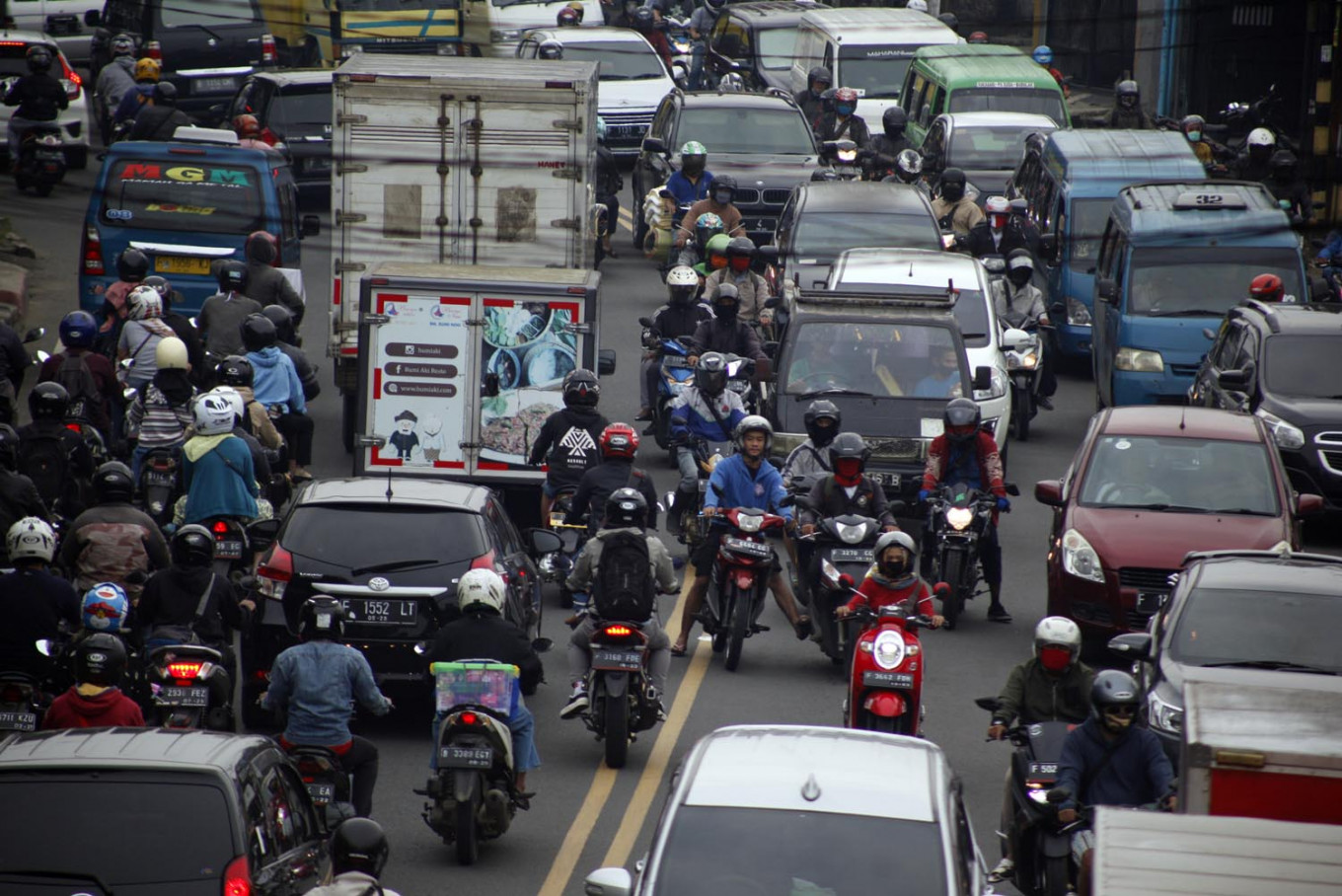Popular Reads
Top Results
Can't find what you're looking for?
View all search resultsPopular Reads
Top Results
Can't find what you're looking for?
View all search resultsEpidemiologist claims easing PSBB could prolong COVID-19 crisis until 2024
Tightening large-scale social restrictions (PSBB) by 20 percent could, he said, help end the COVID-19 outbreak "in less than one month".
Change text size
Gift Premium Articles
to Anyone
A
n epidemiologist has claimed that the government's plan to ease large-scale social restrictions (PSBB) could extend the outbreak until 2024.
Panji Fortuna Hadisoemarto of Padjadjaran University said he had made three different statistical models to estimate the length of the outbreak using data on COVID-19 cases in West Java.
The models suggested that tightening PSBB by 20 percent would end the outbreak “in less than one month” and that loosening the restrictions could extend the outbreak until 2024.
Panji said a 20 percent increase in public activities from the current PSBB levels would cause the health crisis to last until at least 2021.
“By the end of the outbreak, about 22 million people will have been infected by the disease,” said Panji on Wednesday.
He said the government’s plan to allow citizens under 45 years old to work outside their homes would make the situation worse and that at least 3.5 million people between the ages of 14 and 45 would contract the virus by the end of 2024.
The government has been considering a plan to ease PSBB and allow people to work to prevent more people from being laid off.
Panji suggested the government to take into account the “COVID-19 occupational risk score” to decide who should be allowed to resume their usual activities based on their risk of catching or spreading the disease.
For example, professions with lower probabilities of being infected, such as economists, could be among the first ones allowed to work outside again.
“However, I don’t believe Indonesia has such a risk score yet,” Panji said, urging the government to make one soon. (vny)










